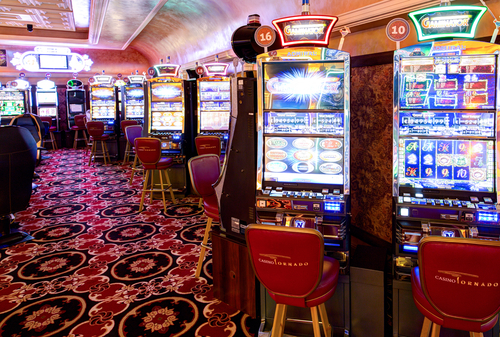
Gambling in casinos has long been a subject of interest and debate, drawing in millions of players globally. With a blend of luck, skill, and the excitement of risk, casino games offer an exciting escape from everyday life. However, as entertainment becomes ever more available, it invites a deeper examination of the morality surrounding these games.
At the heart of the discussion lies the question of whether casinos promote safe gambling or exploit vulnerable individuals. The allure of potential winnings versus the truth of losses can create a challenging dynamic, and understanding this balance is crucial for both players and operators. As we delve into the morals of casino gaming, we will explore the duties of casinos, the impact on society, and the steps that can be taken to foster a healthier gaming environment.
The Impact of Casino Gaming on Society
Casino gaming has a considerable influence on society, affecting not only the financial landscape but also interpersonal dynamics and local frameworks. The revenue generated from casinos can lead to job creation and boost local economies, as they provide numerous employment opportunities in different sectors including hospitality, leisure activities, and shopping. However, while the economic advantages can be significant, communities often grapple with the possible negative impacts that arise from higher gambling activity.
Additionally, the presence of casinos can lead to an rise in gambling addiction, presenting significant challenges for players and families. The excitement of casino games can quickly evolve into a habitual habit, affecting personal relationships and leading to monetary issues. Many individuals may find it difficult with the loss of control over their gambling behaviors, resulting in a need for assistance programs and interventions to address this increasing issue. The social cost of gambling addiction can extend through kinships and neighborhoods, creating an urgent need for responsible gaming initiatives.
In addition to the economic and social ramifications, casino gaming often reflects cultural attitudes towards uncertainty and entertainment. It can foster a sense of joy and leisure, attracting visitors and boosting local travel. However, this allure may also conceal the broader implications of gambling as a method of entertainment, provoking ethical questions about its advertisement and availability. As communities weigh the advantages and drawbacks of casino gaming, the need for responsible practices and regulation becomes increasingly critical in ensuring that the beneficial elements are enhanced while minimizing the potential harms.
Ethical Issues in Betting Activities
The morality of casino operations often revolve around the risk for addiction and its consequences on people and families. Gambling can lead to significant financial distress, impacting not only the gamblers but also their families. As people become caught in the appeal of winning, many lose sight of their budget, which can result in catastrophic outcomes such as insolvency. This raises moral questions about the responsibility of casinos in fostering safe gambling practices and providing support for those who may be struggling with betting addiction.
Another critical concern is the advertising of gambling to at-risk populations. Casinos often aim at low-income people or neighborhoods with the offer of quick gains, which can perpetuate patterns of poverty and hopelessness. In this situation, the ethics of advertising strategies used by gambling establishments come under examination, as they may exploit the need of individuals seeking an escape from economic troubles. This manipulation raises ethical questions about the integrity of the gambling industry and its responsibility to safeguard its most at-risk patrons.
Additionally, the effect of gambling gaming on society as a whole cannot be overlooked. While some argue that casinos create employment and boost local economies, others point to the community costs associated with problem betting, increased crime rates, and a burden on public resources. Balancing financial advantages with the risk for community issues presents a challenging ethical dilemma for lawmakers and gambling operators alike. The challenge lies in finding a ethical approach that takes into account the welfare of people and communities while still permitting for the pleasure of casino activities.
Oversight System and Duties
The legal framework related to gaming operations is created to ensure justice, honesty, and gambler safety. Different government agencies and casino commissions establish and apply regulations that dictate how casino activities work, the standards for activity development, and the protocols for handling winnings. These regulations vary by jurisdiction but commonly involve permit requirements for providers and rigorous measures to avoid deception and dishonesty.
In also to oversight bodies, casino operators bear considerable responsibility in preserving moral standards within their establishments. They must implement safe player practices that support player protection and consciousness, including offering self-ban options and providing information about the hazards associated with gambling. Establishments are also accountable for training workers to spot signs of compulsive gaming and know the correct measures to assist patrons in trouble. nhà cái bet88
Furthermore, transparency in gaming operations is essential for earning and keeping public confidence. Casinos should provide clear details about the chances of activities, advertising deals, and any associated risks. By fostering an culture of honesty and responsibility, gambling establishments can help lessen the likelihood adverse impact of gambling while enhancing the general betting experience for all participants.
